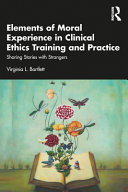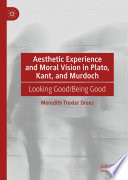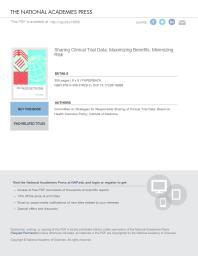Elements of Moral Experience in Clinical Ethics Training and Practice 1st Edition by Virginia Bartlett ISBN 1003801552 9781003801559
$50.00 Original price was: $50.00.$25.00Current price is: $25.00.
Elements of Moral Experience in Clinical Ethics Training and Practice 1st Edition by Virginia L. Bartlett – Ebook PDF Instant Download/Delivery: 1003801552, 9781003801559
Full download Elements of Moral Experience in Clinical Ethics Training and Practice 1st Edition after payment
Product details:
ISBN 10: 1003801552
ISBN 13: 9781003801559
Author: Virginia L. Bartlett
Elements of Moral Experience in Clinical Ethics Training and Practice 1st Edition: Elements of Moral Experience in Clinical Ethics Training and Practice: Sharing Stories with Strangers is a philosophical and professional memoir of the education, training, and professional development of becoming a clinical ethics consultant. Utilizing a phenomenological and narrative lens, this book offers a fresh and energizing window into the field of healthcare ethics by pairing compelling clinical narratives of what it is like to do clinical ethics consultation with clear reflections and accessible introductions to key philosophical, professional, and humanistic roots for responsible practice. Each chapter contains a firsthand account of a clinical ethics encounter – with vivid detail, verbatim dialogue, and internal monologues that reveal the consultant’s reflections throughout the consultation. Following or at times woven into the clinical story, each chapter explores elements of practice by highlighting philosophical, professional, and humanistic resources that connect to and shape meaning in everyday clinical ethics work, drawing from phenomenologically and narratively oriented ethicists (Richard Zaner, Andrea Frolic, Mark Bliton, and Stuart Finder), influential thinkers in adjacent fields (Alfred Schutz, Kurt Wolff, and Pierre Bourdieu), and creative writers and artists (Barry Lopez, Joe Henry, Audre Lorde, Robert M. Pirsig, and Dar Williams). The innovative structure signposts and illustrates distinct elements of clinical ethics experience and practice, inviting the reader to move through the book in different ways, according to their own learning goals, as graduate students, advanced trainees, practicing clinical ethicists, or ethics educators. By focusing on themes identified in the unique instances or experiences of first-hand accounts, or by tracing the philosophical reflections on grounding and orienting texts from the field, readers can access different elements of clinical ethics practice while the book as a whole models a process for considering and interrogating these elements. Elements of Moral Experience in Clinical Ethics Training and Practice: Sharing Stories With Strangers invites readers to articulate, reflect on, share, and ultimately learn from their own experiences in clinical ethics consultation.
Elements of Moral Experience in Clinical Ethics Training and Practice 1st Edition Table of contents:
PART I: Elements of Discovery
-
Seminar in Strangeness
- Observations I: Seminar in Clinical Philosophy, October 2003
- Stairwell Stories I: Vanderbilt University Medical Center, Main Hospital Lobby
- Observations II: Seminar in Clinical Philosophy, October 2009
- The Clinical Part of Clinical Ethics or, Strangeness in the Seminar in Clinical Philosophy
- Encountering the Stranger with Alfred Schutz
- The Strange Life of Alfred Schutz
- Schutz’s Stranger as a Model
- Mapping the Unfamiliar World
- The Stranger’s Discipline and Elements of Responsibility in Clinical Ethics
- What’s So Strange About a Seminar?
-
Clinical Attention as Surrender-and-Catch
- Mr. Jones and Me
- Never Quite Easy Again: The Surrender of Attention, the Surrender-To of Paying Attention
- Disruption and Attention in Clinical Contexts
- Mr. Jones and the Experience of Surrender
- Intellectualizing the Disruption Away
- Encountering Kurt Wolff’s Surrender-and-Catch
- Elements of Wolff’s Surrender
- Elements of Wolff’s Surrender-to
- Clinical Ethics Rounds and the Discipline of Surrender-To
- Total Involvement
- Suspension of Received Notions
- Pertinence of Everything
- Identification
- The Risk of Harm
- Surrender-to as Responsibility for Attention
- The Particular Matters for Responsible Practice
- Practicing Surrender-to: An Invitation to Reflective Clinical Ethics
Interlude I: Methods for Unknowing: Disruption and Attention
- The Orientation of the Stranger
- The Problematic of Disruption
- From the Stranger’s Strategies to the Surrender-to
- Surrender as Method: A Not Entirely Benign Procedure
PART II: Elements of Learning
3. Self-Reflection and Self-Education in Clinical Ethics
- Unexpected Invitations in the Neonatal ICU
- Not a Solo-Sport: Clinical Self-Reflections and Self-Education with Others
- Reflecting on NICU Journals and the Practice of Self-Reflection
- Strangers, Surrenderers, and Self-Reflective Dancers
- After a Moment: Recollecting and Reflecting on Meanings and Motivations
- Andrea Frolic’s Mindful Embodiment
- Too Serious for Trial and Error
- The Occasion for Practice Emerged
- I Could Write a Book…
- Reflecting on NICU Journals and the Practice of Self-Education
- Harald Ofstad and Self-Education in Moral Development
- So, What Can I Figure Out from These?
- Isn’t That What Normally Happens?
- Always More or Less Dissatisfied: Ofstad’s 10th Characteristic of the Moral Agent
- Will I Miss Understanding If I Don’t Ask?
- Shared Self-Reflection and Communal Self-Education in Clinical Ethics Practice
- Affiliation and Attunement and Extra-Ordinary Discourse
- Pivotal and Grounding Orientations: Attunement, Understanding, and What Is Meant by “Ethics”
- Texts on Attunement
- Me and the MOMS: Tuesday
- Uncanny Circumstances Require Extraordinary Attention
- Me and the MOMS: Tuesday, Late Afternoon
- Richard M. Zaner: Attention to the Actual Circumstances at Hand
- Moral Factors and Situational Definitions
- Acts of Affiliation
- Me and the MOMS: Wednesday Morning
- Pierre Bourdieu: Communication with the Other and Shared Meaning-Making
- Responsibility for Collaborative Construction
- Me and the MOMS: Thursday
- Mark J. Bliton: Self-Reflexivity and the Trembling of Attunement
- Unspeakable Responsibility
- What, Then, Is Left?
- Me and the MOMS: Thursday Afternoon
- The Conditions for Extra-Ordinary Discourse
- Afterwards/After Words
Interlude II: Methods for Learning with Others: Vulnerability and Sharing Stories
- From Attunement to Vulnerability
- Learning about Our Own Practice Requires Help from Others
- Engaging with the Zadeh Project: Peer Review as Peer Learning
- Interpersonal and Individual Vulnerability: Reflections on the Zadeh Project and Sharing Stories with Strangers
PART III: Elements of Experience
5. Constituent Vulnerability, Constituent Responsibility
- “We Are Power”
- Afterwards/After Words
- Vulnerability and Responsibility in Clinical Ethics: Connections and Reflections with Hoffmaster, Spiegelberg, and Zaner
- The Dance of Vulnerability and Responsibility
- Barry Hoffmaster and the Meaning of Vulnerability
- Clinical Ethics Consultant’s Responsibility to Vulnerability
- Herbert Spiegelberg’s Ethics for Fellow Existers
- The Undeserved Unfairness of Happenstance in Clinical Encounters
- Richard M. Zaner’s Meditation on Vulnerability
- Responsibility En Masse
- Stories Are Responsibilities
- Clinical Storytelling and Fragments of Experiences
- Part I: Acknowledgement: It Is Impossible to Speak… and Monstrous Not to Mention
- Later That Same Day: The “Cameron Story”
- Part II: Resolution: Lessons Learned in Sharing Stories
- My Story – Clinical Ethics Consultation Service Case Review
- Part III: Pursuance: Reflectively Unphilosophical Fragments or, 10 Things for Readers to Know
- First: This Is the Hardest Story I’ve Ever Written
- Second: Meaning-Making in Clinical Encounters Is Not an Epistemic Project – It Is a Moral Activity Requiring Preparation and Practice
- Third: The Arc of This Chapter Is Learning to Tell My Own Story – As a Clinically and Philosophically Relevant Aspect of Practice
- Fourth: Storytelling Carries Obligations. So Does Listening
- Fifth: I’m Struck by the Multiple Activities at Work in Listening-and-Telling Stories
- Sixth: Clinical Storytelling Is Transformative of Story, of Teller, of Listener
- Seventh: The Work of Stories Is Shared Over Time
- Eighth: Stories We Share Are Also NOT SAFE
- Ninth: The Storytelling Reveals that We Can’t Always Account for What We Do and Why
- Tenth: Storytelling Is Intersubjective and Rigorous in Ways We May Not Appreciate
- Part IV: Psalm: Invitation to Fragmentation
- Sharing Stories with Strangers: Continuing When There Is No Ending
- Notes on Storytelling – Clinical and Otherwise
- Continuing Because There Is No Ending
People also search for Elements of Moral Experience in Clinical Ethics Training and Practice 1st Edition:
clinical ethics examples
elements of moral philosophy 9th edition
examples of moral principles in life
elements of moral experience
the elements of moral philosophy 7th edition
Tags:
Virginia Bartlett,Elements,Moral Experience,Clinical Ethics,Training,Practice
You may also like…
Relationships & Lifestyle - Families & Parents
Training Black Spirit Ethics for African American Teens William L. Conwill
Politics & Philosophy - Social Sciences
The Elements of Moral Philosophy 10th Edition by James Rachels 9781264998692 1264998694
Uncategorized
Principles and Practice of Clinical Trials Steven Piantadosi Editor Curtis L Meinert Editor
Uncategorized
Politics & Philosophy
Religion & Spirituality
Religion & Spirituality - Religious Studies
Uncategorized












